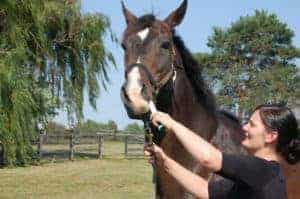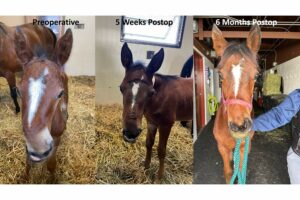Failure of Passive Transfer
Find out why foals require passive transfer of infection-fighting antibodies from their mothers’ first milk.
Share
ADVERTISEMENT
One of the most important complications in neonatal foals is failure of passive transfer: the inadequate absorption of antibodies from the mare’s colostrum. Approximately 5-20 percent of newborn foals are diagnosed with FPT and are at risk for developing serious medical conditions.
To learn why passive transfer is so critical and how to prevent it from happening in your foal, follow the steps illustrated in this infographic, from broodmare vaccination to supplemental colostrum administration.
With a visual understanding of how your newborn’s immune system functions, you can work with your veterinarian to prepare for foaling and ensure your foal receives the protection he needs.

Share

Written by:
The Horse Staff
The Horse: Your Guide To Equine Health Care is an equine publication providing the latest news and information on the health, care, welfare, and management of all equids.
Related Articles
Stay on top of the most recent Horse Health news with















